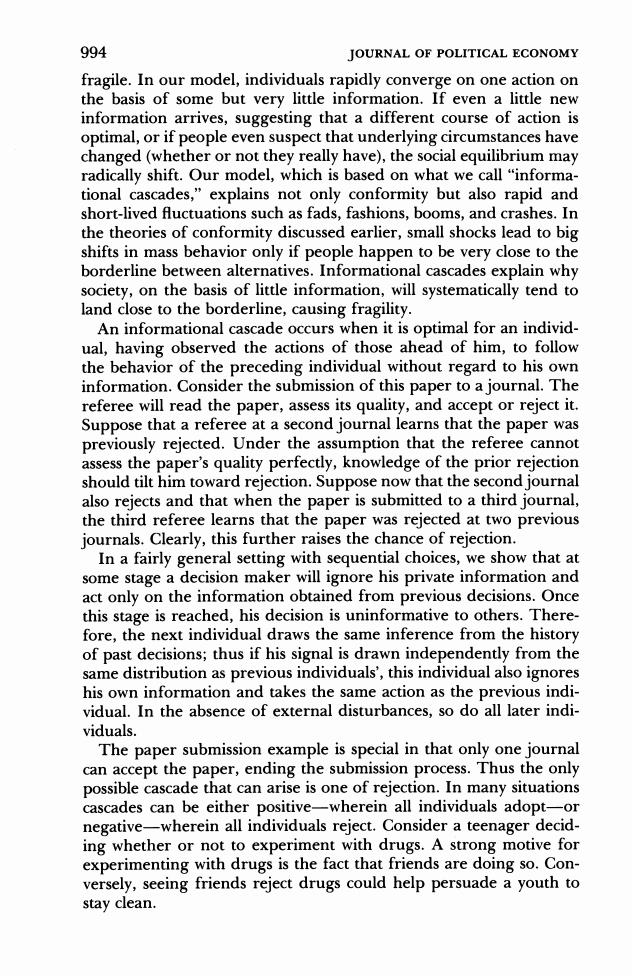正在加载图片...

994 JOURNAL OF POLITICAL ECONOMY fragile.In our model,individuals rapidly converge on one action on the basis of some but very little information.If even a little new information arrives,suggesting that a different course of action is optimal,or if people even suspect that underlying circumstances have changed(whether or not they really have),the social equilibrium may radically shift.Our model,which is based on what we call "informa- tional cascades,"explains not only conformity but also rapid and short-lived fluctuations such as fads,fashions,booms,and crashes.In the theories of conformity discussed earlier,small shocks lead to big shifts in mass behavior only if people happen to be very close to the borderline between alternatives.Informational cascades explain why society,on the basis of little information,will systematically tend to land close to the borderline,causing fragility. An informational cascade occurs when it is optimal for an individ- ual,having observed the actions of those ahead of him,to follow the behavior of the preceding individual without regard to his own information.Consider the submission of this paper to a journal.The referee will read the paper,assess its quality,and accept or reject it. Suppose that a referee at a second journal learns that the paper was previously rejected.Under the assumption that the referee cannot assess the paper's quality perfectly,knowledge of the prior rejection should tilt him toward rejection.Suppose now that the second journal also rejects and that when the paper is submitted to a third journal, the third referee learns that the paper was rejected at two previous journals.Clearly,this further raises the chance of rejection. In a fairly general setting with sequential choices,we show that at some stage a decision maker will ignore his private information and act only on the information obtained from previous decisions.Once this stage is reached,his decision is uninformative to others.There- fore,the next individual draws the same inference from the history of past decisions;thus if his signal is drawn independently from the same distribution as previous individuals',this individual also ignores his own information and takes the same action as the previous indi- vidual.In the absence of external disturbances,so do all later indi- viduals. The paper submission example is special in that only one journal can accept the paper,ending the submission process.Thus the only possible cascade that can arise is one of rejection.In many situations cascades can be either positive-wherein all individuals adopt-or negative-wherein all individuals reject.Consider a teenager decid- ing whether or not to experiment with drugs.A strong motive for experimenting with drugs is the fact that friends are doing so.Con- versely,seeing friends reject drugs could help persuade a youth to stay clean